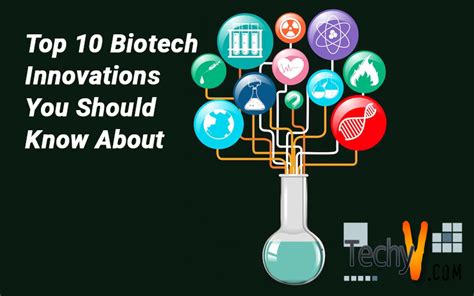The Impact of Compliance on Biotech Innovation: A Balancing Act
The biotech industry is a dynamic landscape of groundbreaking discoveries and immense potential. However, navigating this landscape requires a delicate balance between pushing the boundaries of scientific innovation and adhering to a complex web of regulatory compliance. This intricate relationship significantly impacts the speed, cost, and overall success of biotech innovation. While compliance might initially appear as a restrictive force, it plays a crucial, albeit often challenging, role in ensuring patient safety, public trust, and ultimately, the long-term sustainability of the industry.
What are the Key Compliance Challenges in Biotech?
Biotech companies face a multitude of compliance challenges, often varying depending on the specific stage of development and the nature of their products. These challenges span several regulatory bodies and encompass various aspects of the product lifecycle.
Good Manufacturing Practices (GMP): Maintaining GMP standards throughout the manufacturing process is paramount. These stringent guidelines ensure the quality, safety, and consistency of biotech products, including pharmaceuticals, biologics, and medical devices. Deviation from GMP can lead to costly recalls, regulatory sanctions, and reputational damage.
Intellectual Property (IP) Protection: Protecting intellectual property is vital for biotech companies. Patents, trademarks, and trade secrets safeguard innovations, allowing companies to recoup investments and maintain a competitive edge. However, navigating the complexities of IP law and ensuring proper protection can be a significant challenge.
Clinical Trials and Data Integrity: Conducting rigorous and ethically sound clinical trials is essential for demonstrating the safety and efficacy of new therapies. Maintaining data integrity, adhering to ethical guidelines, and complying with regulations like GCP (Good Clinical Practices) is crucial for gaining regulatory approvals and building public trust. Data breaches and inconsistencies can severely hamper progress and lead to substantial setbacks.
Regulatory Approvals: Gaining regulatory approvals from agencies like the FDA (in the US) or the EMA (in Europe) is a lengthy and complex process. This involves submitting extensive documentation, undergoing rigorous reviews, and potentially navigating appeals processes. The timelines and requirements associated with regulatory approvals can significantly impact the time-to-market for new biotech products.
How Does Compliance Affect Biotech Innovation?
The impact of compliance on biotech innovation is multifaceted:
Increased Costs and Time to Market: The stringent regulatory requirements and rigorous testing procedures inherent in compliance significantly increase the cost and time required to bring new products to market. This can be particularly challenging for smaller biotech companies with limited resources.
Resource Allocation: A substantial portion of a biotech company's resources must be dedicated to ensuring compliance. This can divert resources from research and development, potentially slowing down the pace of innovation.
Risk Mitigation: While demanding, compliance ultimately mitigates risks. By adhering to regulations, biotech companies minimize the potential for product failures, recalls, and legal liabilities, safeguarding their reputation and financial stability.
Enhanced Credibility and Public Trust: Demonstrating a strong commitment to compliance builds credibility and trust among investors, patients, and the public. This is particularly critical in an industry where safety and efficacy are paramount.
Stimulating Innovation in Compliance itself: The need for compliance can actually spur innovation. Companies are constantly seeking better, more efficient, and less costly ways to manage compliance, leading to advancements in technologies and processes related to data management, quality control, and regulatory affairs.
Does Compliance Stifle Innovation or Enhance it?
The question of whether compliance stifles or enhances innovation is a complex one. While the costs and time constraints associated with compliance can be substantial, they are ultimately necessary for ensuring patient safety and maintaining public trust. A well-regulated industry fosters responsible innovation, preventing the release of unsafe or ineffective products that could damage the industry's reputation and erode public confidence. Striking the right balance between rigorous regulation and the freedom to pursue groundbreaking research remains a key challenge for the biotech industry.
What are the Future Trends in Biotech Compliance?
The future of biotech compliance is likely to be shaped by several key trends:
Increased Data Analytics: The use of big data and artificial intelligence will likely play an increasingly important role in managing and analyzing compliance data, improving efficiency and reducing the risk of errors.
Digitalization and Automation: Automation of compliance processes, such as electronic submissions and automated data validation, will become increasingly common.
Global Harmonization: Efforts to harmonize regulatory requirements across different countries will continue to gain momentum, reducing the complexity of bringing products to global markets.
Blockchain Technology: Blockchain technology has the potential to enhance transparency and traceability in the supply chain, ensuring the integrity and authenticity of biotech products.
In conclusion, compliance plays a pivotal role in the biotech industry. It's a double-edged sword, demanding significant resources while simultaneously safeguarding patient safety, building public trust, and fostering responsible innovation. Navigating this complex landscape requires a strategic approach that balances the pursuit of groundbreaking discoveries with the imperative of adhering to stringent regulations. The future of biotech hinges on the ability of companies to successfully manage this delicate balance.

